In a fireside chat with President Aoun, LinkedIn chairman says executives should embrace compassionate leadership
LinkedIn executive chairman Jeff Weiner says Northeastern is “on the bleeding edge” in higher education with its focus on experiential learning and human-centered AI.
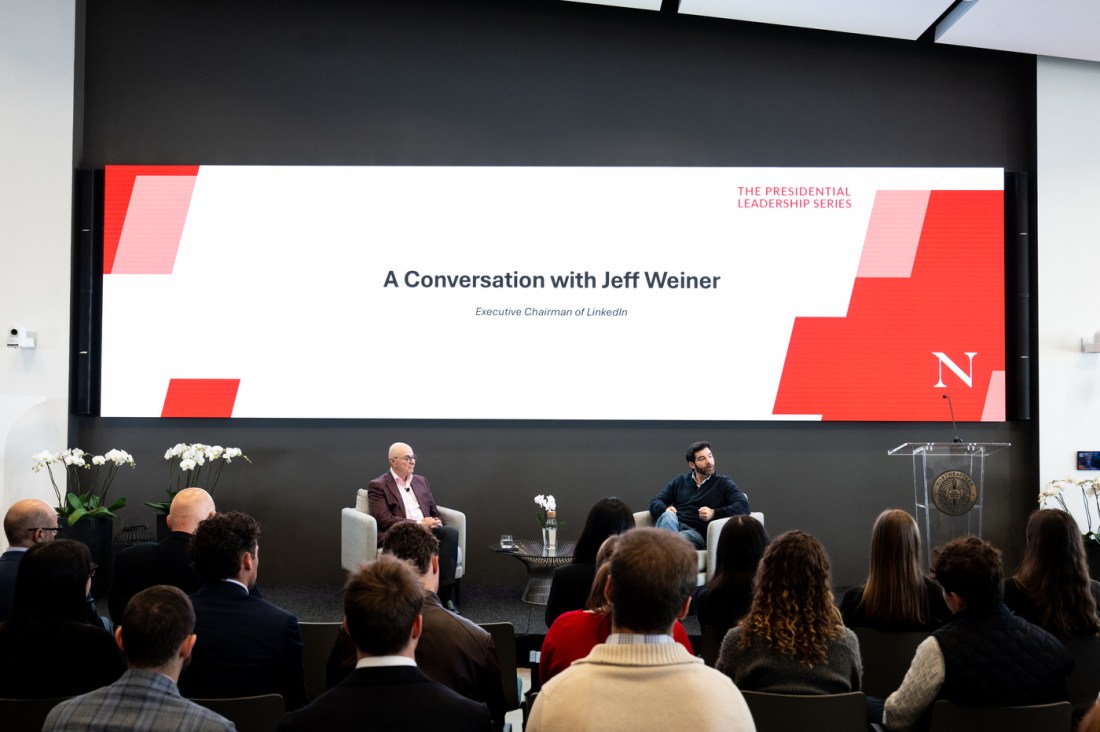
Compassionate leadership can drive company gains and empower employees to realize their hopes and dreams, LinkedIn executive chairman Jeff Weiner said during a fireside chat with Northeastern University President Joseph E. Aoun Thursday.
As an executive, Weiner said he strives to be an empathetic leader by recognizing and understanding the needs and challenges of his employees.
“I’m going to do everything within my power to set them up to be successful,” he said.
Weiner was invited to speak as part of Northeastern University’s Presidential Leadership Series, in which Aoun speaks with a range of thought leaders about innovative ideas and insights, entrepreneurship and business best practices.
Aoun said he was delighted to have the executive chairman at Northeastern and then dove into a wide-ranging discussion on the need for introspection and thoughtfulness in leadership, the mindset organizations should adopt in the artificial intelligence age and the power of social platforms for networking.
Given Weiner’s background, Aoun asked him to reflect on what compassion means to him.
“You’ve led various organizations, including LinkedIn. Were you compassionate in the same way in every place or did you modify and modulate?” Aoun asked.
Weiner said it’s been a journey and he hasn’t always been as compassionate as he should have been as a leader.
It requires looking inward, he said.
“For me, compassion begins with mindfulness and very specifically being introspective of my thoughts,” he said. “That requires a lot of energy and a lot of effort.”
A seasoned business executive, Weiner has been with LinkedIn for close to 17 years. During his tenure as CEO from 2008 to 2020, he helped grow the social network’s impact, influence and scale.
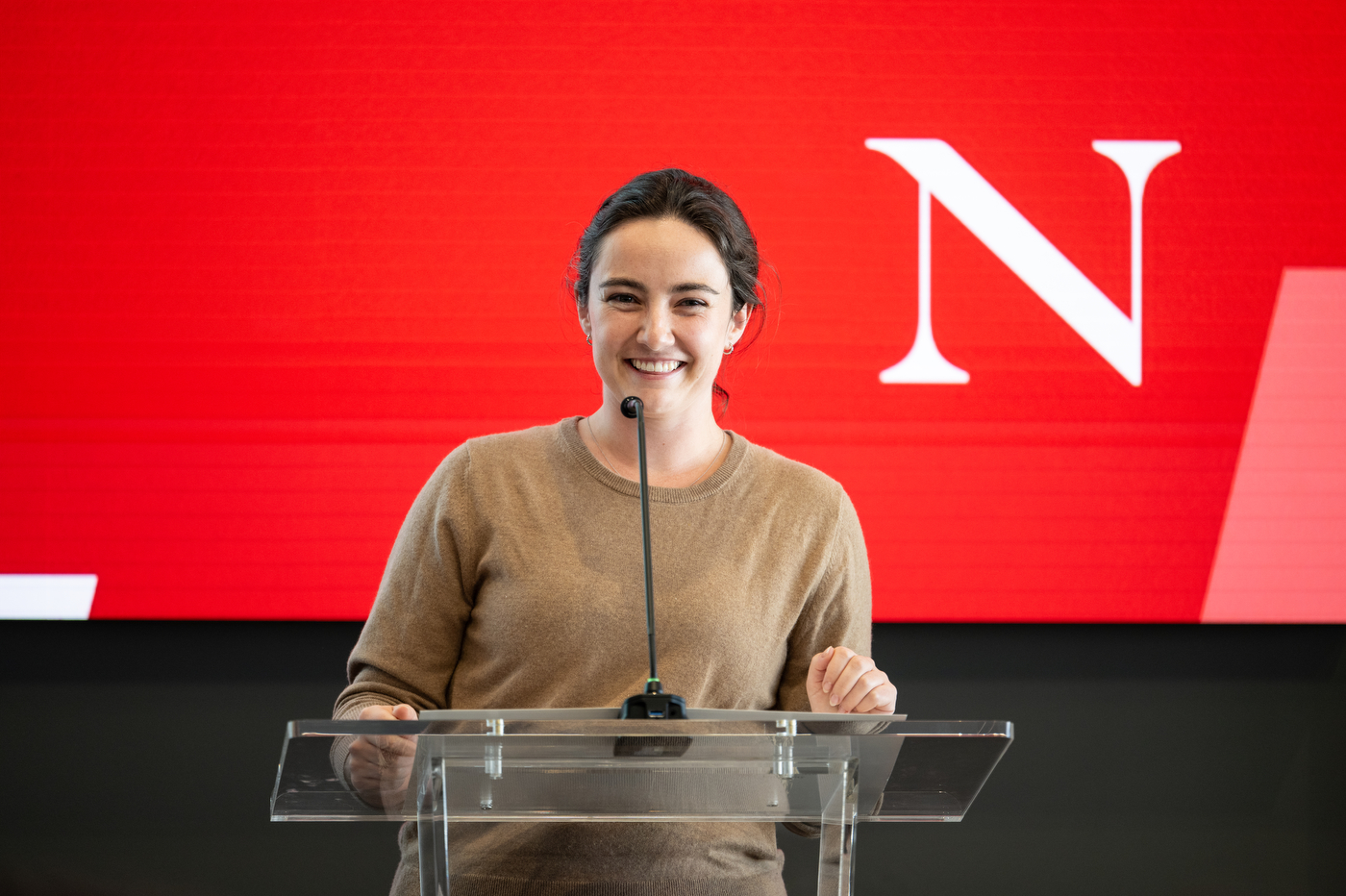
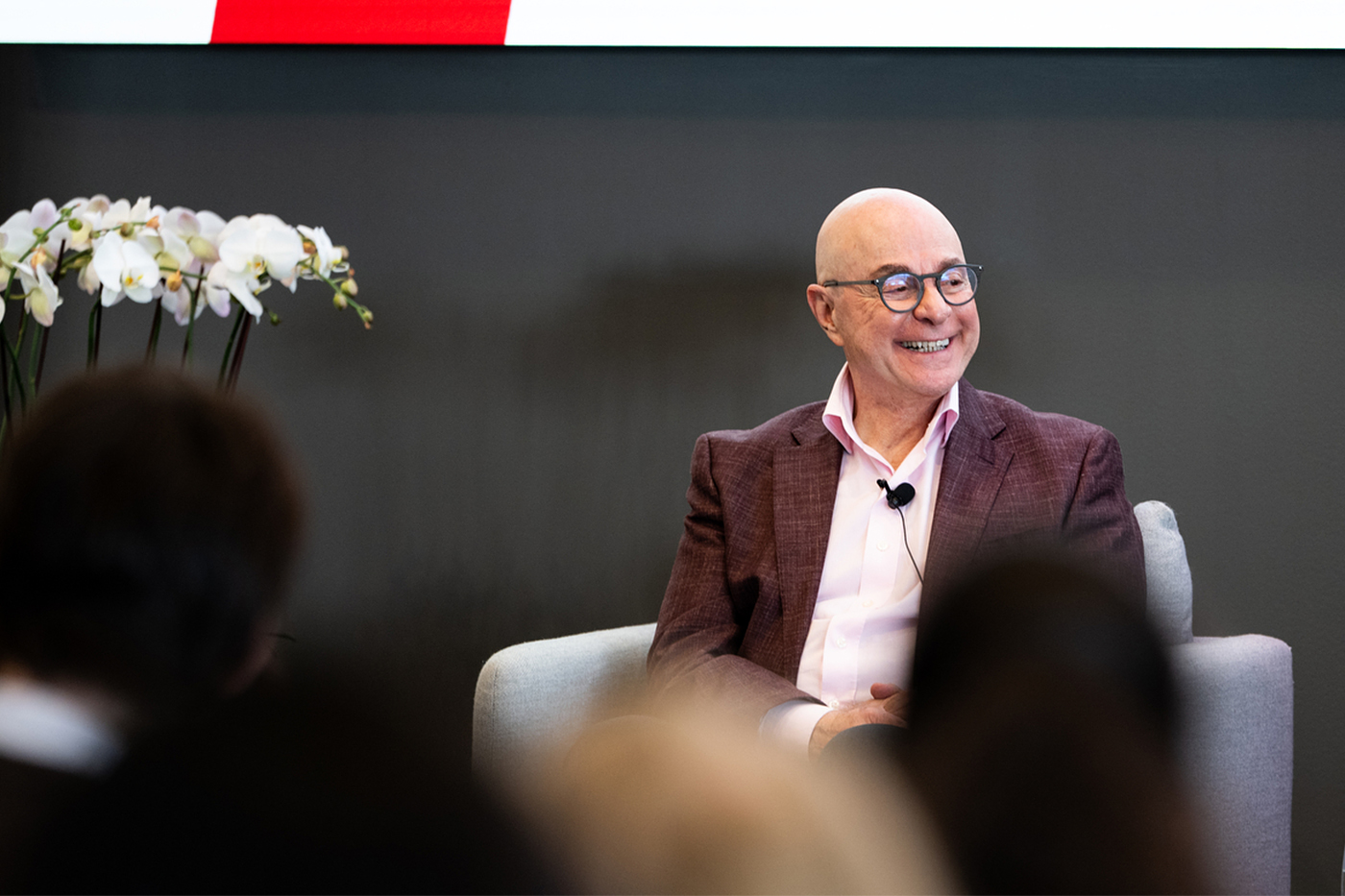


Under his watch, the site went from 33 million active members to more than 690 million by the time he transitioned to executive chairman, according to his LinkedIn biography.
He also made the social network into a multi-billion dollar enterprise — increasing annual revenue from $78 million to $7.8 billion. Now, as the executive chairman, he helps the organization with broader key strategic initiatives and serves as a sounding board.
Any manager who wants to lead with compassion will no doubt have to think critically about their own role and how to most appropriately respond to their employees’ requests and concerns, Weiner emphasized.
“It really does start with self-awareness and recognizing how you’re responding to the situation and being equally aware of those around you and course-correcting,” he said.
It’s also important for leaders to recognize the difference between compassion and empathy, he highlighted.
Editor’s Picks
“Empathy is feeling what another living thing feels,” he said. “You get angry. I get angry. You are insecure. I am insecure. If used positively and constructively, it can be enormously valuable, but if left by itself, I think there are negative consequences.”
Compassion, on the other hand, is putting yourself in someone else’s shoes – alleviating their suffering, he said.
“Simply put, compassion is empathy plus action,” he said.
A major endeavor that takes up much of Weiner’s time outside of LinkedIn is his nonprofit — The Compassion Project, which he co-founded in 2017. The goal of the group is to provide what it calls “compassion education” programming for elementary students throughout the United States.
“I can’t think of anything more important to teach our children,” Weiner said.
Out of all the good qualities a manager or leader can have, compassion should be near the top of the list, Weiner said, and it’s important to teach children early to think critically and put themselves in other people’s shoes.
Equally, when embracing AI, organizations should think introspectively and understand how it could be used to help advance the organization’s “sense of purpose,” he said.
“The end-state implications” may seem scary, but AI becomes much less overwhelming when leaders start to think about how it can be used to advance their objectives and goals, Weiner said.
In that respect, Northeastern is “on the bleeding edge” in higher education with its focus on experiential learning and human-centered AI, Weiner said. “Students on this campus — I’ve never seen anything like them.”
While AI has certainly reshaped the job landscape, he said, organizations and workers have agency.
It’s critical for people to get up to speed on learning about AI and mastering it.
“I think employers and educational organizations need to be teaching it,” he said. “They need to be preparing the workforce, or the future of the workforce.”
And human collaboration will always be king, he highlighted.
“What is LinkedIn for you?” Aoun asked.
LinkedIn was started to help people not only find a job but to highlight the power that networking could have in presenting people with new opportunities they couldn’t have ever dreamed about, which is still true of the social network today, Weiner said.
“Over a billion people have signed up for LinkedIn,” Weiner said. “A huge majority of them have professional profiles that they can share with anyone in the world, not a resume that they can send to one employer.”

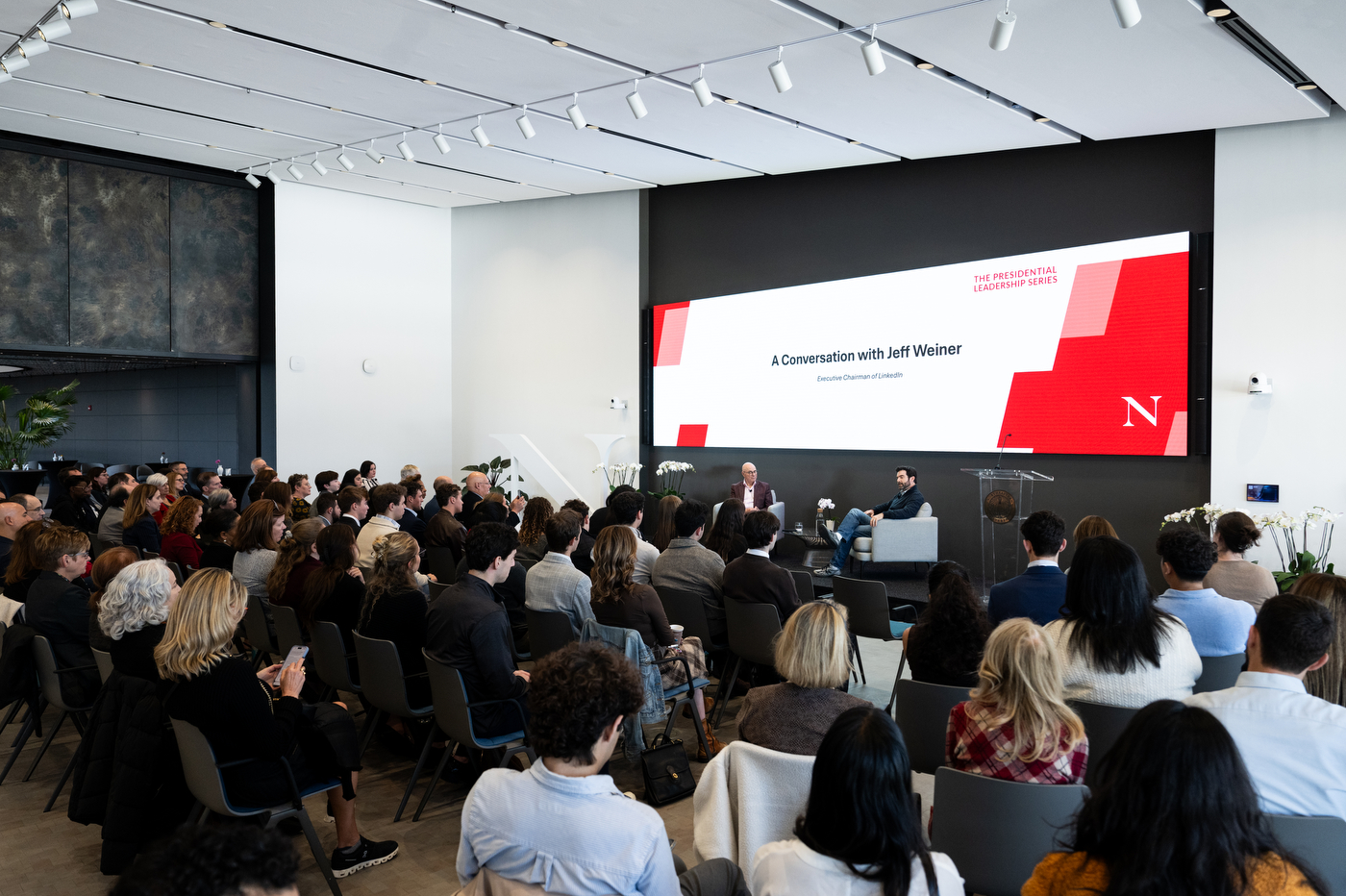
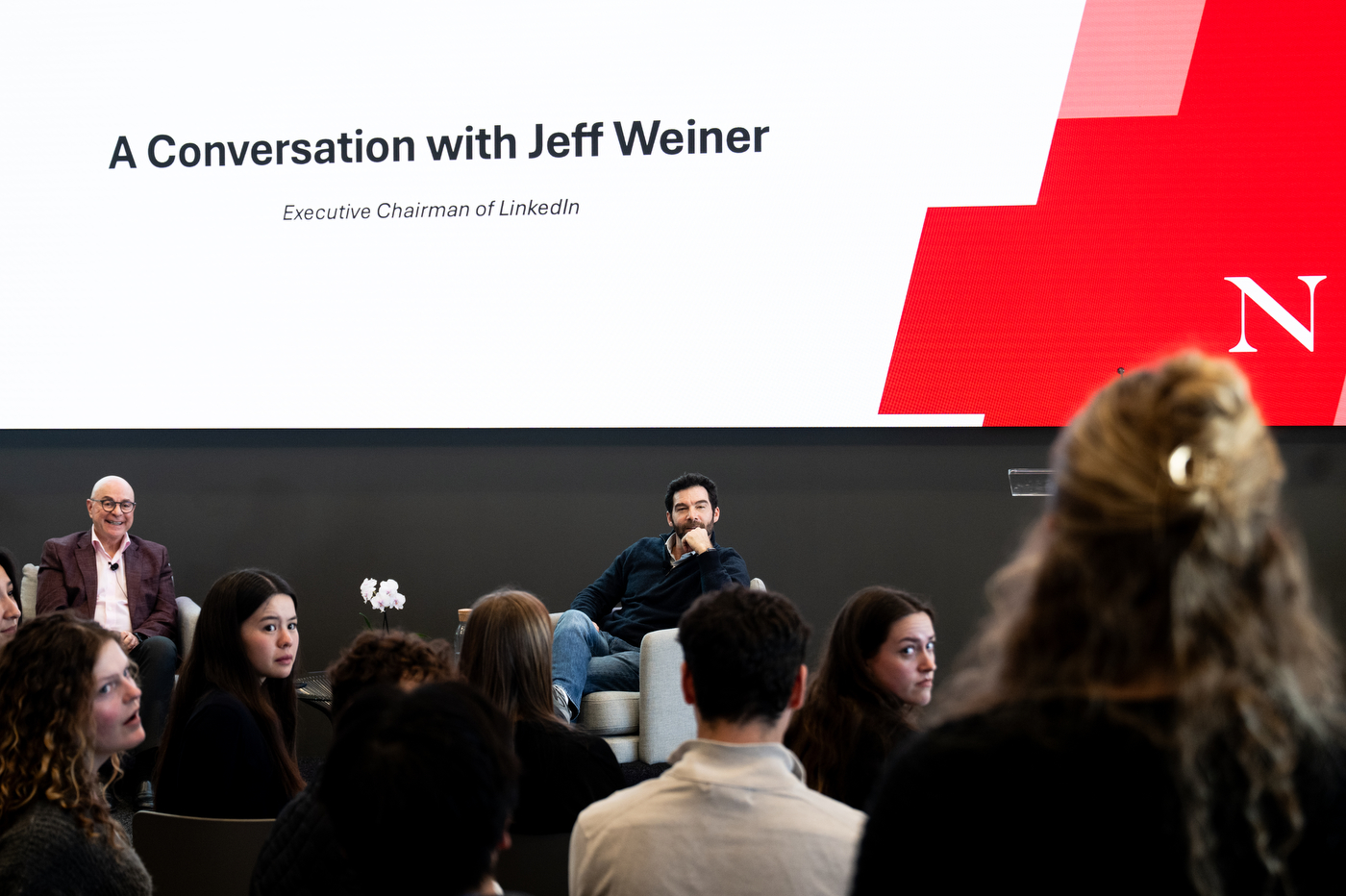
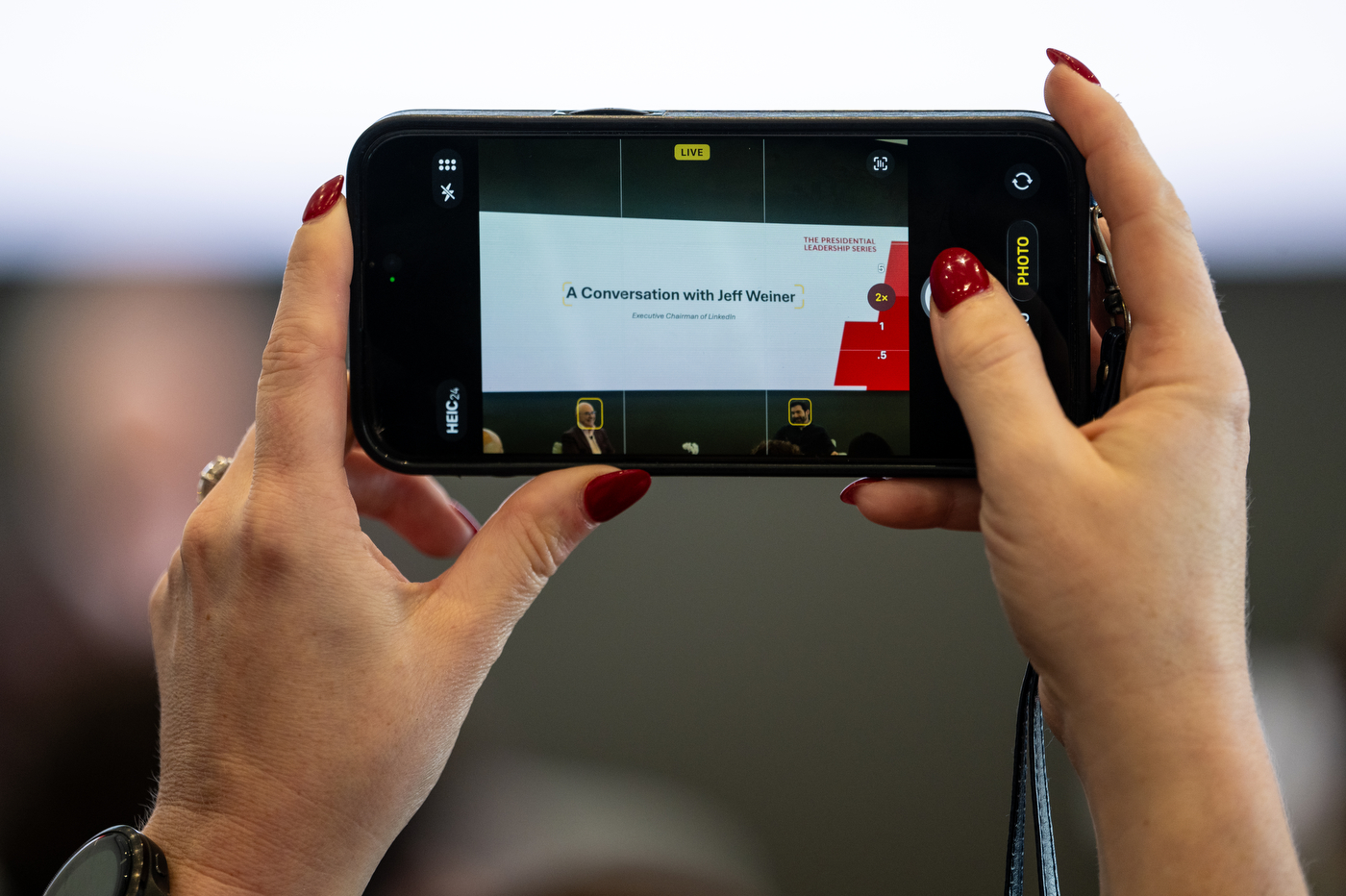
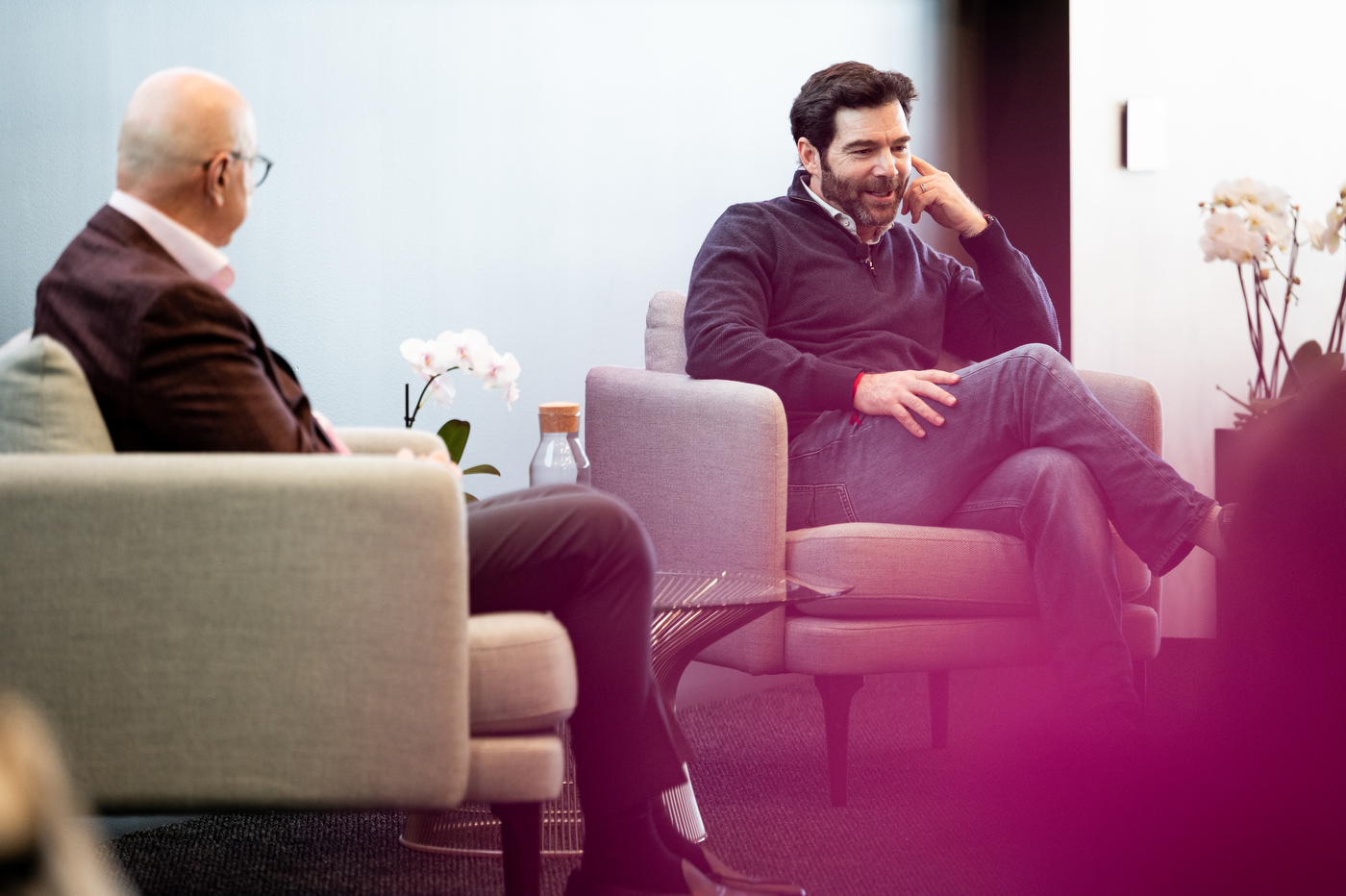
But how accurate are those profiles?
They tend to be more accurate than people’s actual resumes, he said.
“Anyone know why?” Weiner asked the crowd.
“Because the whole world could see it,” he answered. “You are taking a risk when you’re exaggerating that job you had over the summer.”










